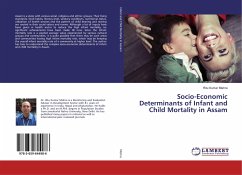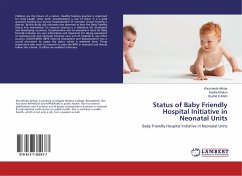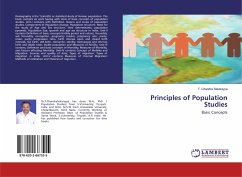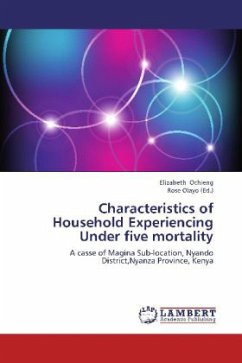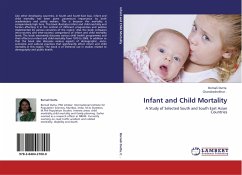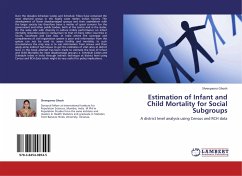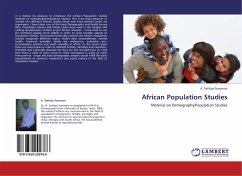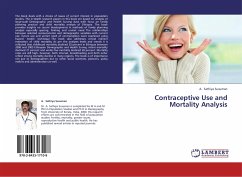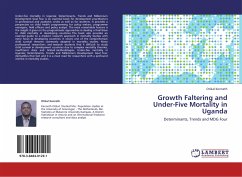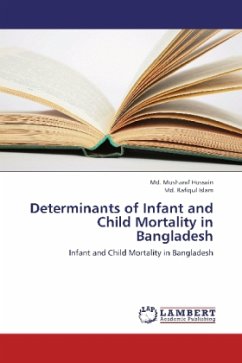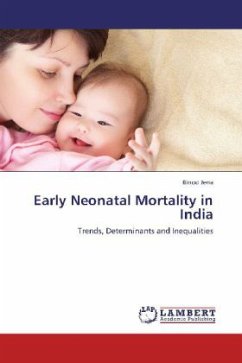
Early Neonatal Mortality in India
Trends, Determinants and Inequalities
Versandkostenfrei!
Versandfertig in 6-10 Tagen
32,99 €
inkl. MwSt.

PAYBACK Punkte
16 °P sammeln!
Newborn survival still remained a major concern in many developing countries. Deaths during the first week of life now account for three-fourth of the total neonatal deaths. In India, the current rate of early neonatal mortality is very high and over the years the rate of reduction is very slow. Therefore, a faster rate of reduction in neonatal mortality requires a higher rate of reduction in early neonatal deaths. In this backdrop this book examines the trends, determinants and inequalities in early neonatal mortality in India using SRS and NFHS data set. The results of the study show that th...
Newborn survival still remained a major concern in many developing countries. Deaths during the first week of life now account for three-fourth of the total neonatal deaths. In India, the current rate of early neonatal mortality is very high and over the years the rate of reduction is very slow. Therefore, a faster rate of reduction in neonatal mortality requires a higher rate of reduction in early neonatal deaths. In this backdrop this book examines the trends, determinants and inequalities in early neonatal mortality in India using SRS and NFHS data set. The results of the study show that the probability of dying is higher among newborns of very small birth size, born to old age mothers and living in unhygienic environment and lower among women taking full antenatal care and having at least secondary education. The inequality analysis shows that early neonatal deaths are concentrated among the poor population and the main determinants of the inequalities are women with lack of education, absence of antenatal care, poor economic status and living in rural areas. This book will help policy makers in designing appropriate policies for ensuring better survival of newborns.



